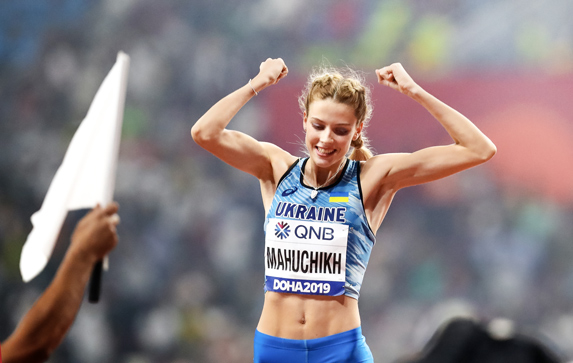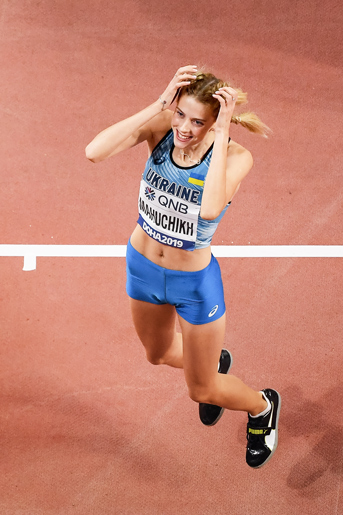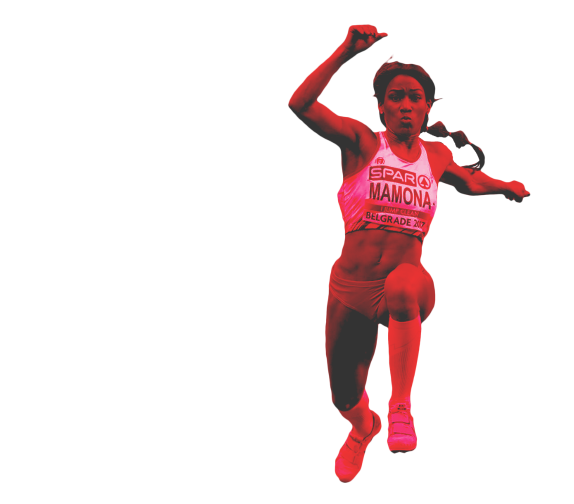
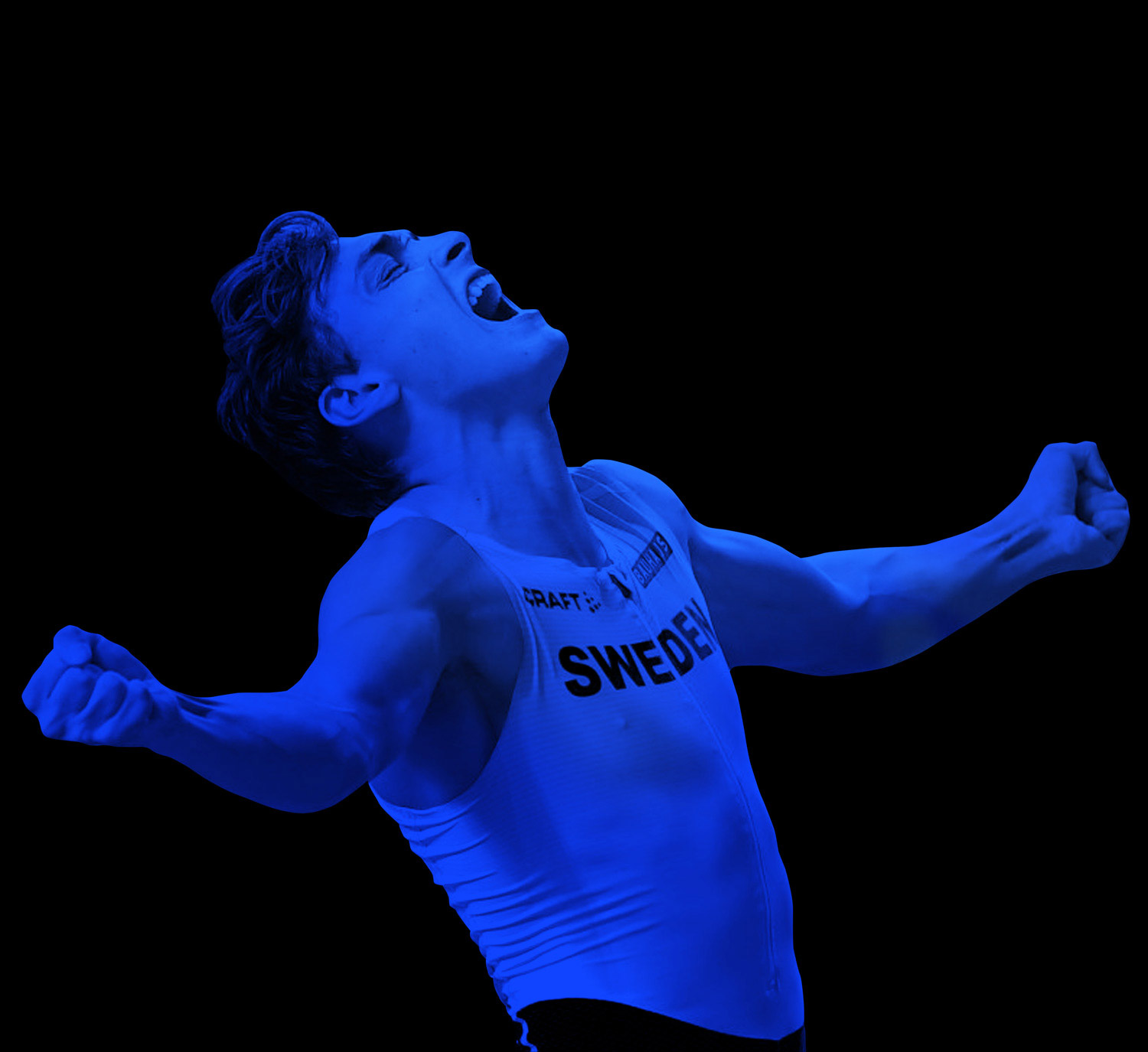
PUMA’s Track and Field athletes have to train hard in order to deliver world class performances when competing. But what exactly are the preparations they have make in order to be Forever Faster when it counts? We have asked them how they prepare for major competitions and how they managed to reach the top of world class athletics.
Canadian sprinter Andre de Grasse had a great 2019, winning silver at the World Championships in Doha in the 200-meter event and bronze over 100 meters. His preparations for 2020 already started in November, with endurance and strength-building exercises to get ready for the start of the outdoor season. With strong performances last year, you would expect the pressure to build on the 25-year-old, but he thrives under such conditions. “I perform best when the pressure and expectations are the greatest,” he said. Until then, early starts and many hours of training are part of his daily routine.
“I perform best when the pressure and expectations are the greatest.”
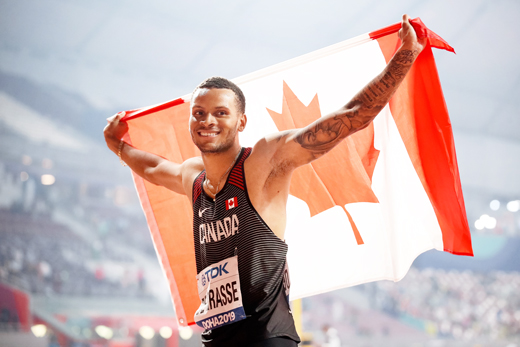
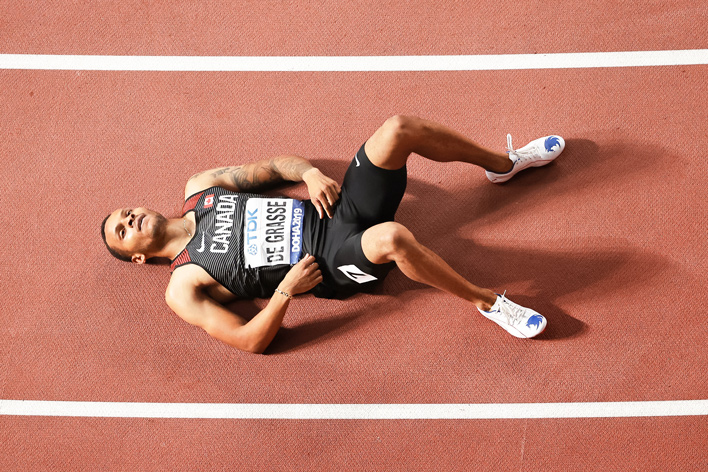
Nobody jumps higher than pole-vault star Armand “Mondo” Duplantis, who broke the world record twice in 2020. Mondo has been a pole vaulter as long as he can think, as he was introduced to the sport in his parents’ backyard when he was only three years old. While training is an important part of his routine, he says competing is just as important in pole vaulting. “Competitions are some of the best training because you figure out the small little details such as the right pole stiffness, pole length, and where to grip on the pole,” he said. That’s why Mondo lines up a schedule of competitions throughout the season before taking a break of two to three weeks ahead of a major international event. That doesn’t mean his daily routine is more relaxed, however, as he works out twice a day at the height of the season.
“Competitions are some of the best training.”
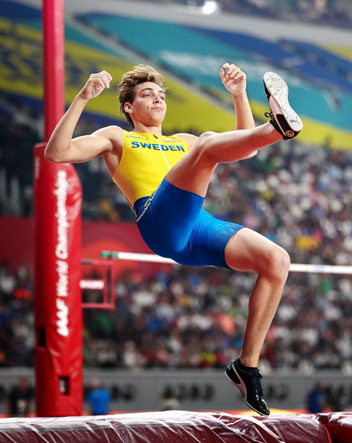
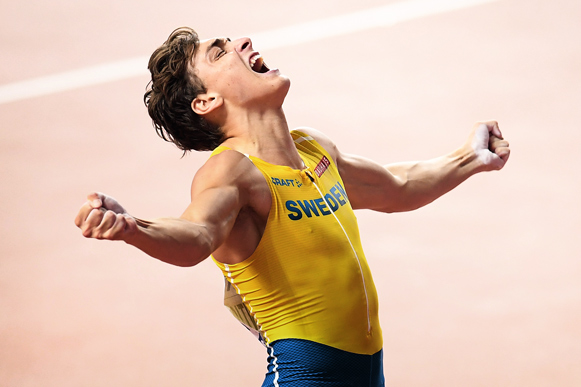
World Champion Tajay Gale knows what it takes to be a successful long jumper. But the Jamaican’s main recipe for success may surprise you. Being lazy helps! “I’m a very lazy person. I’m not sure that helps with my resting, but I literally do nothing else,” he said. Once he hits the track, however, he becomes another man. “I’m very focused and a dedicated, strong-minded person. I think it’s a talent to really focus on what you want to do, to be in the moment.”
“I think it’s a talent to really focus on what you want to do, to be in the moment.”
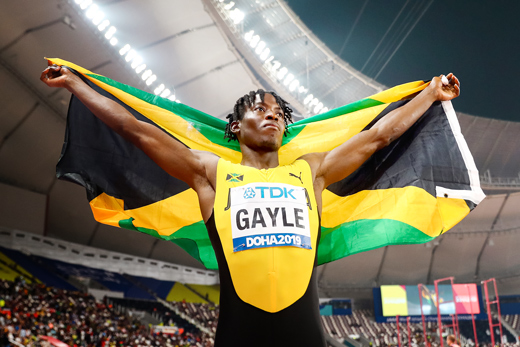
The long jump is all about building up tension and feeling the energy of the crowd just before that crucial moment, when a few seconds decide whether the countless hours of hard training have paid off. No wonder then, that Cuban long jumper Juan-Miguel Echevarría, who took the bronze at the 2019 World Championships, thinks of himself as a bit of an entertainer. “I would have loved to be a musician or a performer, enjoying the audience and enjoying my life,” he said.
“I would have loved to be a musician or a performer, enjoying the audience and enjoying my life.”
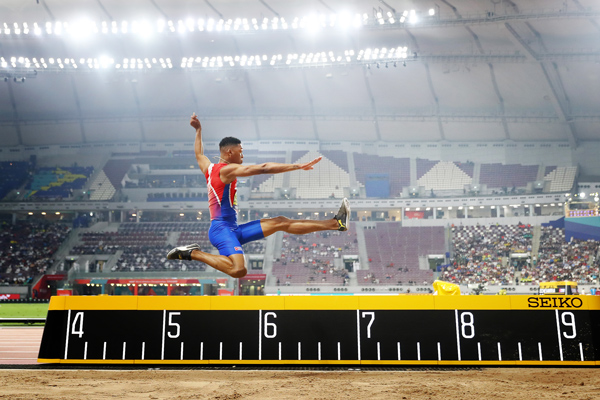
High jumper Naoto Tobe wanted to be a policeman when he was a child, but things turned out quite differently. The Japanese athlete now follows strict training and dietary schedules to stay on top of his game. However, he thinks that his true strength lies not in his legs, but in his head. “My ability to think is my strongest skill. Actually, I got a Ph.D. in sports science, which focused on the motion analysis of high jumping.”
“My ability to think is my strongest skill.”
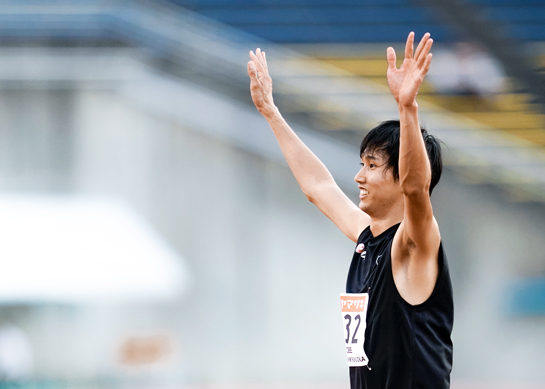
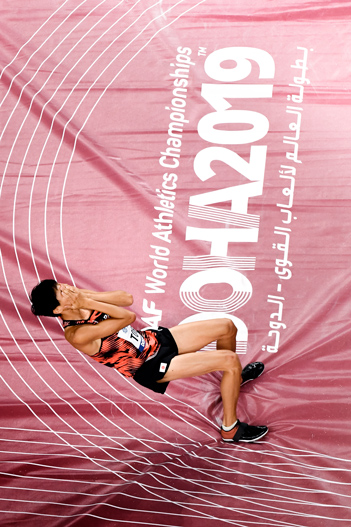
The European triple-jump champion of 2016, Patrícia Mamona is no stranger to a tough workout. For her sport, she needs to work on both her pace and her strength to jump further than her competitors. “I need to make sure that my core is strong, that I have developed enough strength in the weight room to translate into faster speed and longer jumps. I also have to build up endurance through cardio workouts,” she said. Six months before a major competition, Patricia hits the gym and the track but also works on her mental strength, which she says is crucial for a successful athlete.
“Mental strength is crucial for a successful athlete.”
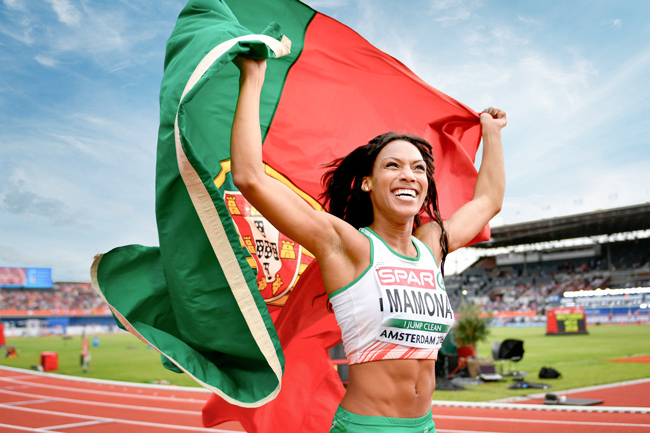
The long jump is not for the faint hearted as running as fast as you can and then taking a giant leap takes courage. That is why German long jumper Alexandra Wester has a bold vision of herself outside of sports. “I think I’d be a stunt woman. Some crazy stunts. I’d also do some martial arts, I’ve actually done some of that,” she said. She takes no risk when it comes to her training, however: “Everyone has to find their own way and manage themselves completely, including their own training, regeneration, nutrition, coaching and mindset. You have to find your own ‘why’!”
“You have to find your own ‘why’!”
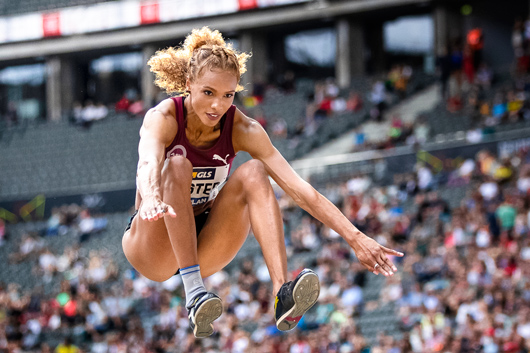
It’s great if you can turn your passion into your job. As a successful athlete, Tatjana Pinto has travelled the world and competed in track and field events in many different countries. If she hadn’t become an athlete, things would not be so different. “I would travel all over the world, exploring everything I can,” the three-time German Champion in the 100-meter sprint said. To stay at the top, she knows it takes a mix of hard work, talent, discipline, persistence, passion and, of course, health. “I would say my strongest skill is reminding myself every day that I can achieve even more, if I go for it,” she said.
“It takes a mix of hard work, talent, discipline, persistence, passion and, of course, health.”
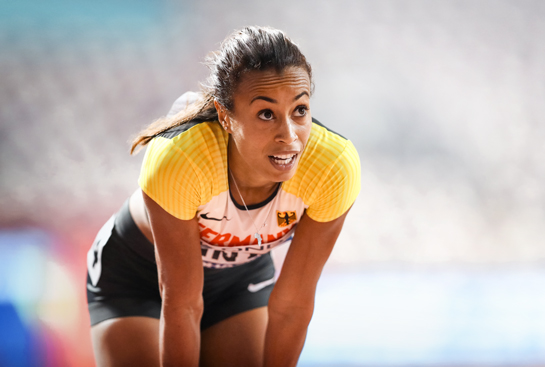
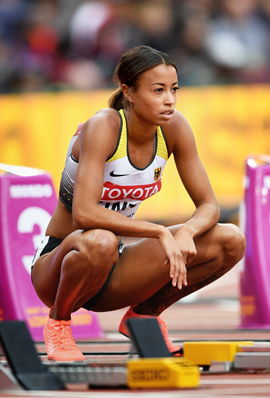
Can you have a sweet tooth, if you’re a professional athlete at the top of your game? Ukrainian high-jumper Yaroslava Mahuchikh, who took silver at the World Championships last year has a strict daily training routine. “If you’re an athlete you must be hard working and never give up,” she says. He backup career plan may then come as somewhat as a surprise: “If I wasn’t an athlete, I’d be an artist or a confectioner.” Can she add further successes to her resume to put, quite literally, the icing on the cake?
“If you’re an athlete, you must be hard working and never give up.”
